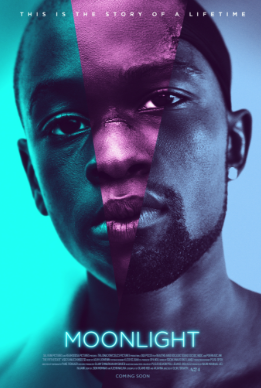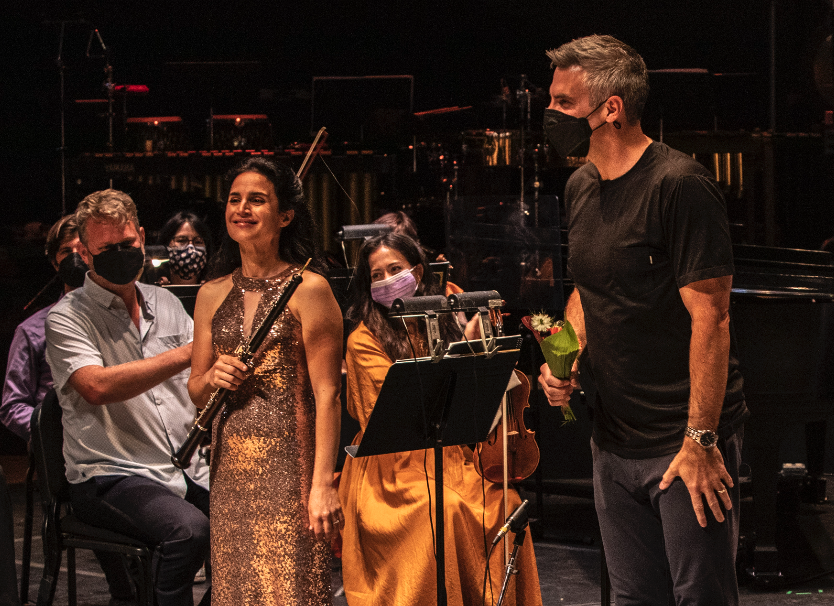The intertextuality of Moonlight: Second Oboe Concerto, composed by Kevin Puts and the film ‘Moonlight,’ directed by Barry Jenkins
By Kendall Grady
No work exists in a vacuum. This is the handiest way I’ve found to distill intertextuality, a mode of literary theory coined by Julia Kristeva in 1966. There is the text on the page, but “The systems, codes, and traditions of other art forms and of culture in general are also crucial to the meaning of a work,” Graham Allen writes of Kristeva’s analytical apparatus (Intertextuality, 2000). A text is not a closed work with one definitive meaning that can be unlocked. Rather, it is plural and relational, what Kristeva’s predecessor Mikhail Bakhtin might term heteroglossic. Author, audience, time, place, and circumstance come to bear on a text’s interpretation within the milieu of its creation as well as its reception, and a text takes on new meanings each time these factors change, and each time these factors are placed in conversation with the milieus of other works. In this sense, texts of all kinds (literature, speech utterances, film, performance, etc.) continually recreate each other. Even this text that I am drafting today will mean something different to you tomorrow.

Composer Kevin Puts saw the critically acclaimed and Academy Award winning film Moonlight (2016), written and directed by Barry Jenkins, by chance while on a cross-country flight. I like to think of Puts hurtling through the atmosphere seven miles above the earth with a bag of pretzels—a majestic feat if you really stop to consider it—when he fell into the world of Jenkins’ Miami, Florida. Moonlight is a profound coming-of-age and coming-out portrayal of a young Black protagonist navigating social inequality and homophobia in his community of Liberty City at the height of the crack epidemic. Inspired by the tone, texture, and exquisite emotional complexity of the film, Puts composed Moonlight: Second Concerto for Oboe and Strings (2017), which has its West Coast premiere in-person at the Cabrillo Festival of Contemporary Music on Saturday, August 6, 2022, conducted by Cristian Măcelaru and performed by the Cabrillo Festival Orchestra featuring oboist Katherine Needleman.
More than an alternative soundtrack to its namesake, Puts’ Moonlight is an intertextual expansion upon an emotional landscape in three movements: “Moonlight,” “Folly,” and “Air (The Eye Begins to See).” The result is a new work that opens space in conversation with Jenkins’ film, which is itself influenced by the play In Moonlight Black Boys Look Blue by Jenkins’ co-writer Tarell Alvin McCraney. Like me, Puts is from a white, Midwestern family. His Moonlight is layered yet again not only by the formative experiences particular to his background, but by my own ties to the city of Miami, where I moved from Chicagoland and lived for several years before relocating to Amsterdam and then coastal California. In addition to the site-specificity of Liberty City, the northwestern neighborhood of Miami where Jenkins sets his film and practically a character unto itself, my ear hears Puts’ oboe credenza as well as Liberty City’s Miramar High School emptying for lunch; a Midwestern summer thunderstorm; the crowded bicycle lanes of Amsterdam; and the rush of California surf. I listen to Moonlight informed by all the texts that have made me the person I am at the exact moment that I sit in the Santa Cruz Civic Auditorium during open rehearsal. And when I hear Moonlight’s West Coast premiere, intertextuality holds that I will already be a different person hearing a different piece.
Intertextuality, however, also demands responsibility. It is important to recognize the nuances of Liberty City with afterlives in Puts’ composition. Liberty City is a historically Black neighborhood that grew out of Liberty Square, a New Deal housing development and one of the first subsidized housing initiatives in the American South. Liberty Square became a sought after destination for Miami’s predominantly Black, middle class residents looking to expand their opportunities beyond the segregated downtown neighborhood of Overtown. The moniker Overtown, in fact, came into use after Liberty City residents referred to going back “over town” for the attractions of what was hailed “the Harlem of the South.” However, when I-95 was built through Overtown in the 1950s, this hub of music, theater, comedy, and performance suffered economic and cultural upheaval. As the struggle for Civil Rights progressed through the 1960s, racial tensions intensified between Miami’s white residents and the city’s Black residents seeking to rebuild their communities threatened by violence and systemic oppression. A twelve-foot cement wall dividing Liberty Square from its surroundings still exists in Liberty City to this day, a scar reminding longtime Miamians and transplants like myself of the city’s painful history of racialized inequality and discrimination.
Moonlight the film is, among many things, a testament to the enduring difficulties wrought by a country founded on the subjugation of Black bodies and the erasure of Black culture, as well as the resilience of Black communities in the face of deliberate municipal tactics such as redlining. Put’s program note reveals that the piece “was written in the wake of the 2016 presidential election, during a time of great upheaval and division in the country and—for me—a profound feeling of disillusionment.” The turbulence of the U.S.’s immediate and not-so-distant pasts can be heard in Moonlight’s transition into what Puts describes as a “driving and sinister, at turns threatening and grotesque” second movement before resurfacing for a melodic final third.
When I open myself to intertextuality, I have to consider not only the resonances between Puts’ and Jenkins’ respective moonlights, but also those between the U.S. past and present—Miami and Santa Cruz—my personal experience and the lives of others—the associations I bring to Puts’ composition and those that you contribute. When I open myself to intertextuality, I feel grateful to the Cabrillo Festival for the occasion to grapple with these emergent texts through the shared space of musical performance.

Oboist Katherine Needleman and composer kevin Puts following the West Coast premiere of Moonlight.
